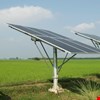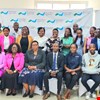
/ Southern Africa
GWP Zambia Convenes a Youth Dialogue on SDG 6
Zambian Youth representatives from Government agencies, private sector, civil society organizations, academic and research institutions, cooperating partners, and the media convened in Lusaka, Zambia on 31 July 2023 for a Youth Dialogue on Sustainable Development Goal (SDG) 6 on Clean Water and Sanitation. The Dialogue was organised by the Global Water Partnership (GWP) Zambia.

/ Southern Africa
Buzi, Pungwe, and Save Watercourses Commission launched to oversee the management of water resources within the shared basins
The Buzi, Pungwe, and Save Watercourses Commission (BUPUSACOM) was launched in Beira, Mozambique, on 19 July 2023, following the signing of the BUPUSA Water Courses Commission Establishment Agreement in Harare, Zimbabwe on 17 May 2023.
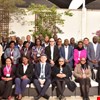
/ Southern Africa
SADC holds workshop for exchange of knowledge on Water-Energy-Food Nexus and impact of climate change on communities
The Southern African Development Community (SADC) convened a workshop to share knowledge on issues involving water, energy, and food (WEF) Nexus, how they affect climate change, and their impacts on communities in Southern Africa.
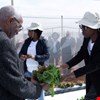
/ Southern Africa
SADC officially hands over a climate smart agriculture project to Metsimotlhabe Village, Botswana
On Friday, 30 June 2023, the Southern Africa Development Community (SADC) Secretariat handed over a climate-smart agriculture pilot project to Metsimotlhabe Community Trust in Botswana. The project was officially handed over to the community by Mr. Nchidzi Mmolawa, Deputy Permanent Secretary in the Ministry of Lands and Water Affairs, who was the Guest of Honour at the event.
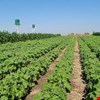
/ Southern Africa
Zambia’s Katapazi WEF Nexus Demonstration Project to Help Reduce the Impacts of Climate Change
On 21 June 2023, the Southern Africa Development Community (SADC), in collaboration with Zambia’s Ministry of Energy, and the Ministry of Agriculture handed over the Katapazi WEF Nexus Demonstration Project to the community. The project is located in Katapazi area of Kazungula District, Southern Province in Zambia.
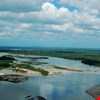
/ Southern Africa
Tanzania to Launch USD 15 billion Water Investment Programme
The Government of Tanzania will launch a USD 15 billion national Water Investment Programme (TanWIP) in 2023.
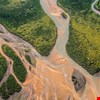
/ Southern Africa
Mozambique and Zimbabwe Establish Tri-Basin Institution to Manage the Buzi, Pungwe, and Save Water Resources
The governments of Mozambique and Zimbabwe have established a tri-basin institution to manage the Buzi, Pungwe, and Save River Basins’ water resources, which have, over the years, suffered from extreme climate effects such as floods, droughts, and cyclones.
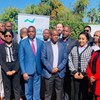
/ Southern Africa
Botswana to Develop a USD 10.8 billion Water Investment Programme
The development of a USD 10.8 billion Botswana Water Investment Programme is currently under way following H.E. Mokgweetsi Masisi’s commitment at the United Nations 2023 Water Conference in New York to place the provision of water and sanitation services as well as the attendant infrastructure at the forefront of the national development agenda.
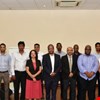
/ Southern Africa
Four SADC Oceanic States collaborate to develop a Water, Energy, Food & Ecosystem Security Nexus Regional Programme
Four SADC Oceanic States of Comoros, Madagascar, Mauritius, and Seychelles are collaborating to develop a Water, Energy, Food & Ecosystem (WEFE) Security Nexus Regional Programme that promotes a multi-sector approach in ensuring natural resource use efficiency, whilst achieving water, energy, and food security.
